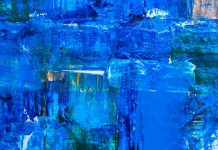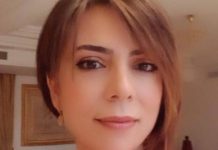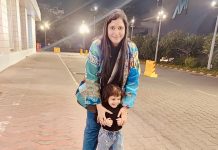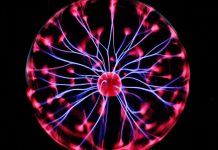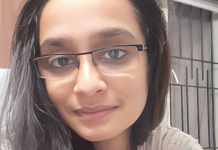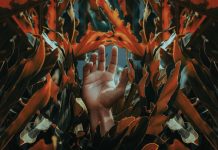A Question, to the Jaw Bones I Know Well
Will my wisdom teeth
fold in
on themselves,
like an incorrectly melting candle, if I admit
to feeling unwise?
Will they disperse in my mouth
if I begin to feel they cannot protect me
from doubt? I wonder if wax has will,
and if so, where it may harden into new home.
Around my tongue, if I shout
I am too grown for wisdom’s guidance?
Or, around the inside of my lips, if I whisper
I am too young to let the teeth go?
Part of me questions
if because I was only given two,
I must keep them longer to understand
their presence. Part of me senses
although not impacted, something has been infected.
That because of this balanced imbalance, measuring
top right jaw and bottom left jaw,
I only ever hear myself
as scream or echo.
Never the first word of morning,
said at just the right volume
to hear myself reborn after each night.
I Wish We Could’ve Met Sooner / Back When We Were Softer
The dogs cast twin shadows in the browning grass of a rural backyard.
One body is a golden shade, rusted
a dull yellow from the dust of leftover summer—finely
crushed memories hoping to be carried into a colder season
they may not survive.
The other is white with black patches,
whose dark boarders are made murky, drowning
amid pale fur that is stained with the dampness of an early snow
on unstable earth.
Their tails wag. The white and black dog’s tail
mirrors the blurred beating wing
of a thinly feathered swan flying at night.
The golden–stained–yellow dog’s tail
mimics the mouth of a creature undiscovered—
a sideways flickering tongue hidden somewhere
between home and heaven. They are happy.
And they hang onto each other, with saliva covered teeth
at the neck of their companion.
One yells, “I want to hold you
where no one else can, by the blueish
veins only God has touched.”
The other echoes, “I want to taste your fur,
the only thing your body has given the world unasked,
to protect the skin beneath it.”
To Be Estranged From Oneself
Today I watched a man admire birds. His eyes danced within their sockets, following erratic flight patterns like planes right before a crash. The next day, through his living room window, I see him begin to mirror his movements after the birds. It begins with his fingers, fluttering to the rhythm of flight and freefall. It continues with his head, snapping the complete circumference of a compass to follow the eyes of birds, even if they are looking at nothing in particular. And the following day, he is gone. Only at twilight does he emerge from his apartment window, bringing pillows and blankets sized to fit the weathered sill. After this arrangement of extended home, he flattens himself against the brick, closes his eyes, and does not move again until dawn. At the first sight of sun, he becomes too warm for his skin, and spends all day peeling it off to reveal white feathers. In seeing them all for the first time, I am rendered snow-blind, and spend my afternoon recovering.
That night, under a
waning moon, he takes flight to
the call of an owl.
Diagonal Parking
I’m alone in my car
eating pitted dates from Lotte.
My car is off and I’m listening to nothing.
I can see the donation boxes from here. Big metal bins,
dumpsters with steel lids welded shut.
Painted yellow with blue lettering.
Clothe & Sho s Don tion.
At its base, the yellow looks green.
There are clothes pouring out
of the small drop-off slot.
Purple sneakers for a child
lay on littered pavement next to the bins,
watching a women’s sweater dangle above.
I’m alone in my car,
the engine is off, and I am listening
to the beginning sounds of rain.
The dates
are from the brand
Mom Mom.
The second o is a ruby heart.
About the Author
Madison Yoest is a writer from Maryland. She works as a technical writer and recently graduated Cum Laude with a bachelor’s in English from the University of Maryland, College Park. During her time at the University of Maryland, she completed the poetry track of the Jiménez-Porter Writers’ House, English Honors Program, and Creative Writing minor, together with an additional minor in Art History. She is the recipient of the Henrietta Spiegel Creative Writing Award, and the Sandy Mack Award for Outstanding Honors Thesis for her haibun poetry collection entitled “When Cage Becomes Nest”. Her culminating thesis spotlighted bird metaphor and imagery through the haibun form; investigating themes of flight, stasis, freefall, and the reimagining of a once confining home to a true nest of one’s own. Her poetry chapbook “In the Light” is published with Maverick Duck Press, and her work has appeared in The Racket Journal and Stylus Magazine.



